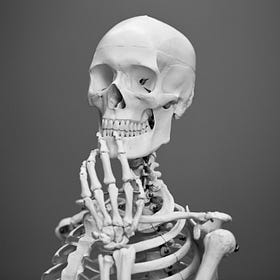The typical human body has 32 of those pearly whites in our mouth — more if we do end up growing wisdom teeth. The set of teeth that we have can be a big factor in making or breaking our external image.
For example, we look at the picture above and we think that the smile that is being exhibited is beautiful. If the teeth in that smile were crooked, poorly aligned, decaying, or if there were a few missing teeth, we wouldn’t be inclined to think that way.
But we do know that our lifestyle can contribute to or prevent tooth decay. For example,
A diet high in sugar consumption will promote tooth decay.
An inadequate cleaning of our teeth will also promote tooth decay.
And tooth decay isn’t very aesthetically pleasing. We don’t like discoloured teeth. Neither do we like to experience pain when we’re chewing. As a child, I never did like the feeling of having loose milk teeth in my mouth, and I was so grateful for when the milk teeth finally dropped out.
Some of those milk teeth dropping out were absolutely painful, while others were painless. But I don’t want to have my adult teeth drop out in the same way as my milk teeth are dropping out.
However, beyond the image of a nice looking set of teeth come the hidden implications of what happens when we aren’t taking proper care of our teeth. Can we even link improper dental care to the development of chronic health conditions?
In some cases, unfortunately, the answer is yes.
But we’d have to look at the process behind how the tooth decays first.
Our teeth are somewhat similar to bones, but are not considered as bones. They contain mineralised calcium. However, the cells in our bones are able to repair any damage sustained to the bones, such as in the case of a fracture, because the bones contain osteocyte cells that promote repairs, while our teeth cannot repair themselves in a similar manner.
This lack of a self-repair function in our teeth indicates that we ought to be very careful about what happens to our teeth if we do desire to have healthy, natural teeth. Once a tooth is lost, the only way to have a full set of teeth again is to get fake teeth implants.
We do need to take care of the 20 billion bacterial cells in our mouths. We’re swallowing approximately 100 billion bacterial cells per day in our saliva. The population distribution of these bacterial cells is highly dependent on what we’re eating and how we’re cleaning our teeth.
There are many uneven surfaces in our mouth that allow bacterial cells to accumulate. The buildup of bacterial cells in a colony helps them to secrete a biofilm comprising extracellular polymeric substances (or exopolymeric substances, EPS), much a like the slimy material that we find in unclean toilets. These EPS materials are necessary to help the bacterial cells survive, and are derived from the sugary foods that we consume in our diet.
The improper cleaning of our teeth allows for the biofilm to build up and strengthen, which over time contributes to a development of a slimy material covering our teeth. As this article mentions,
Plaque is a sticky film that forms on your teeth every day: You know, that slippery/fuzzy coating you feel when you first wake up.
And of course, the live bacterial cells in this biofilm are conducting their own individual survival activities, which end up irritating the gum and causing inflammation to occur, which will eventually result in a dysregulation of our immune system signalling functions over time.
If we’re brushing our teeth and our gums bleed easily when we’re brushing certain sensitive spots — they are inflamed beyond any shadow of a doubt.
With that inflammation comes an enhanced production of pro-inflammatory cytokines such as interleukin 1-beta (IL-1β). As we have seen in the development of osteoporosis, IL-1β enhances the activity of osteoclast cells that dissolve mineralised calcium from our bones. Osteoclast cells in our teeth are also responsible for dissolving mineralised calcium in our teeth, as it is stated in this article that:
excessive osteoclast activity induced by the inflammatory process will exacerbate root resorption.
Where “root resorption” refers to the weakening and the decay of the tooth structure. This inflammatory situation also means that an adult who is in a state of osteopenia or osteoporosis would be very likely to experience loose teeth/root resorption/tooth decay.
A weakened tooth provides more avenues for bacteria to enter the blood. Each tooth has its own blood supply stream. Weakening that barrier allows for bacterial penetration. When they do penetrate into the blood stream, they can make their way down to the gut and cause further problems with gut dysbiosis, as this article explains:
Normally, a dynamic balance is maintained, where reduction of the bacterial community leads to outgrowth of the fungal one and vice versa. Disruption of this balance is associated with outgrowth of certain pathobionts at the expense of a complex community and may lead to disease initiation. Established dysbiosis is supported by local proinflammatory and tumor microenvironment which creates distinct nutritional conditions.
If oral and gut dysbiosis are maintained over the long term, the shift in the biochemical equilibria can result in the development of some nasty diseases.
That’s a long term effect of what can happen if we don’t take good care of our dental health.
However, the reverse can also happen, where we can take good care of our teeth but not of our IL-1β expression levels. When that happens, the risk of tooth decay or the loosening of our teeth can increase, and we might find ourselves wondering why we’re having teeth problems even as we’re practising good dental hygiene techniques.
Our teeth have to be taken care of from both the internal aspects (what we’re feeding ourselves with) and the external aspects (how we clean and maintain it).
But do we really see the implications of what could happen before it’s too late?
It is necessary to take good care of our dental hygiene. Regular checkups are important, as is the self-care that we have to execute to keep our teeth in good condition.
Do feel free to check out Dr J’s customised dental care set below!
Disclaimer: This link is an affiliate link and I may receive commisions for any purchases made via the link.
Also, do feel free to share this article and hit the “subscribe” button to get more updates about the science concepts in nutrition and health, all deconstructed nicely for your convenient perusal!
How Osteoporosis Isn’t Just About A Calcium Deficiency
The adult human body’s skeleton comprises 206 bones. They support our frame and our structure. We need them to stand up and walk. We need them to move about. Sometimes, after a long, tiring day, we may collapse like a sack of potatoes on our couch and feel like we don’t have any bones left…
Bathroom Slime May Be Icky, But It Operates In Ways Similar With Other Parts Of Our Body.
One of the most annoying household chores that I didn’t really like to do was to clean the bathroom. Unfortunately, of course, that responsibility does come along with adulting — unless I did have the money to pay someone to clean my bathrooms regularly for me.
Inflammation — Like It Or Not, It’s Here To Stay.
It would suffice to say that the word “inflammation” is causing quite a stir these days. When we’re injured, for instance, the site of injury is experiencing acute inflammation, and that contributes to unpleasant sensations of pain and swelling that we can feel







